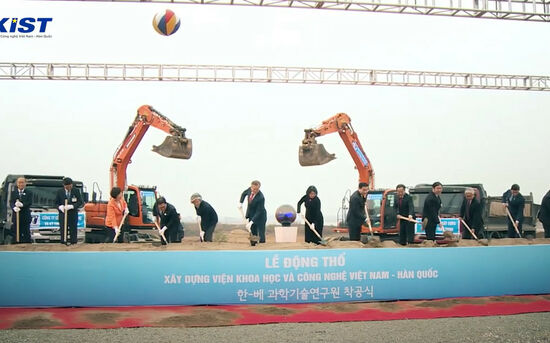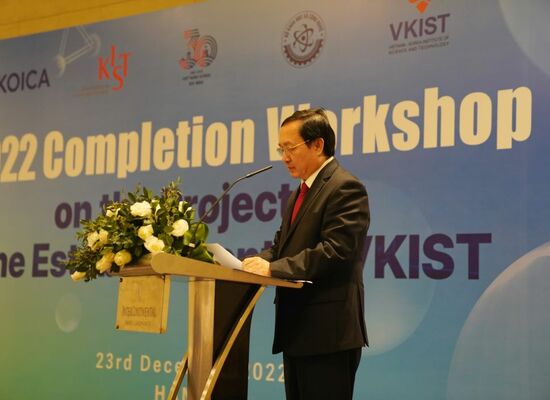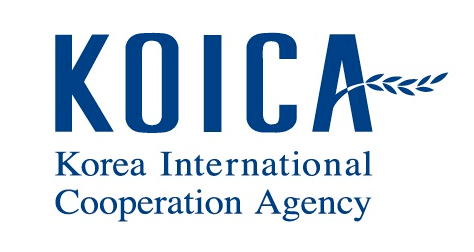In the context that saline intrusion trend in the Mekong Delta is forecasted to increase due to climate change, desalination solution becomes a topical issue which receives lots of attention from competent authorities at all levels.
On that basis, in 2021, VKIST has carried out a project on ‘Supporting the installation and operation of a desalination system’ collaborating with KIST in Korea. Recently, VKIST experts, including Mr. Vu Duc Loi – VKIST Vice President, Mr. Kum Dongwha – Former VKIST President, Mr. Tran Anh Tuan – Head of Planning and Coordination Division together with researcher and administrative staff of VKIST, have visited some places in Ben Tre Province that are seriously affected by the saline intrusion. Besides, VKIST experts have visited the desalination system installed in a primary school in Ben Tre Province to evaluate its operation during the pilot testing period.
On that basis, VKIST has worked with the People’s Committees of some districts and the Department of Science and Technology (DOST) in Ben Tre Province to discuss the plan on expanding that pilot system, contributing to resolving the water contamination situation in this area. Hopefully, this will lay down a solid foundation for further cooperation between VKIST and Ben Tre Province in other aspects.

Overview of the meeting between VKIST and DOST of Ben Tre Province
At the meeting, Vice President Vu Duc Loi expressed his deep appreciation to DOST of Ben Tre Province as well as the locality for their warm welcome. Based on positive results of the field trip to the pilot plant of desalination system, Mr. Loi expressed his optimism in the future of cooperation between VKIST and Ben Tre Province, especially in the water contamination treatment that has been a concern of the locality during several years. The desalination system (or Small RO water purification equipment GSPB-10 in full) was installed at Thanh Hai Primary School (in Thanh Hung B hamlet, Thanh Phu District, Ben Tre Province) within the framework of a joint research project between VKIST and KIST. Mr. Loi also affirmed the superiority of this system compared to other water purification products on the market, especially in thoroughly treating contaminated water with low operating costs by utilizing solar energy. This is genuinely suitable for the characteristics of weather as well as the limited financial investment of the locality. Therefore, VKIST proposed to install 2 to 4 similar systems in Ben Tre Province within 2023.
In addition, Dr. Kum Dongwha - Former President of VKIST, who was engaged in the desalination project right from the beginning, affirmed the importance in a macro scope of the contaminated water treatment, which is also the common concern of neighboring countries such as Laos and Cambodia. Therefore, solving a regional problem will help improve the position of not only the locality but also the face of Vietnam in the international arena.
Welcoming the VKIST delegation at DOST Ben Tre, Mr. Lam Van Tan - Director and other representatives of departments under DOST Ben Tre, expressed his respect and deep gratitude for the companionship of VKIST during the past time, especially in the S&T field that is not yet the strength of Ben Tre. On that basis, he raised a number of outstanding local issues and wished to receive the consultation of VKIST experts, including handling the saltwater intrusion crisis and the problem of clean water supply for schools and residential areas; building a soil map; IT application to building digital government; promoting local products (e.g. Ben Tre coconut); developing high-tech shrimp farming; handling waste discharge in the food processing industry, aquaculture and pig farming.
Understanding the urgency of the above issues, VKIST proposed to apply multidisciplinary integrated technology (including information technology, automation and biosensor) into technical solutions to existing problems. For example, a combination of biosensors and automation or IoT applications in the construction of irrigation sluices to promptly warn and prevent high tides leading to saltwater intrusion.
VKIST experts also confirmed that Ben Tre Province possesses a lot of development potential, but has not yet taken advantage of this favorable condition to break through. The application of convergence technology in the circular manufacturing (that is, using the output of one process as the input of another process, in order to reduce emissions and negative impacts on the environment) will help Ben Tre create a sustainable surplus value chain, motivating a strong development for the whole province.




VKIST and DOST of Ben Tre visited the desalination system using solar energy installed in Ben Tre
The meeting between VKIST and DOST of Ben Tre ended well and paved the way for several potential cooperative directions in the future. It is expected that these cooperation opportunities will help leverage the role of VKIST as a leading institution in the national S&T in the future.












